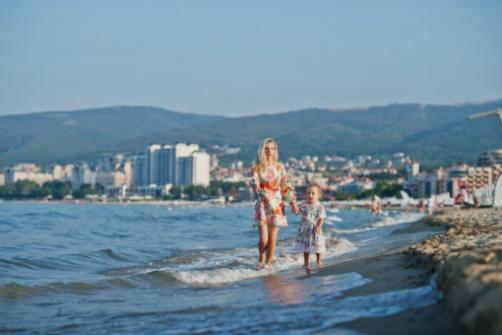As a writer specializing in Bulgaria, travel, and tourism, you understand the importance of sustainability and environmental responsibility in the hospitality industry. Seaside accommodations in particular face unique challenges when it comes to water conservation, given their proximity to the ocean and reliance on water-intensive facilities such as pools and gardens. In this article, we will explore various eco-friendly practices that can be implemented in seaside accommodations to reduce water consumption and promote sustainability.

Utilizing Eco-Friendly Laundry Practices for Water Conservation
By adopting eco-friendly laundry practices, hotels and resorts can significantly reduce their water usage and minimize their environmental impact.
One way to achieve this is by using high-efficiency washing machines that are designed to use less water compared to traditional machines. These machines are not only more water-efficient but also more energy-efficient, further reducing the carbon footprint of the laundry operations.
Additionally, hotels can opt for environmentally friendly laundry detergents that are biodegradable and free from harmful chemicals. By choosing these products, hotels can prevent water pollution and reduce the amount of wastewater that is released into the environment.
Moreover, implementing a linen reuse program can also contribute to water conservation efforts. By encouraging guests to reuse their towels and linens, hotels can reduce the frequency of laundry cycles and subsequently decrease water usage.
Overall, by prioritizing eco-friendly laundry practices, seaside accommodations can make a significant contribution to water conservation efforts and help preserve the natural beauty of their coastal surroundings.
Importance of Installing Low-Flow Showerheads in Seaside Accommodations
Installing low-flow showerheads in seaside accommodations is crucial for water conservation efforts. These fixtures reduce the amount of water used during showers without compromising on the quality of the experience for guests. By implementing low-flow showerheads, seaside accommodations can significantly decrease their water consumption and contribute to sustainable practices in the hospitality industry.
Benefits of Drip Irrigation Systems for Water Efficiency in Resort Gardens
Drip irrigation systems offer numerous benefits for resort gardens, especially in seaside accommodations where water conservation is crucial. By delivering water directly to the roots of plants, drip irrigation systems reduce evaporation and runoff, resulting in significant water savings. This method also promotes healthier plant growth by providing consistent and controlled hydration levels. Additionally, the precise delivery of water helps prevent weed growth and minimizes the risk of water-related diseases in plants. Overall, drip irrigation systems are an effective and efficient way to maintain beautiful gardens while conserving water resources in seaside resorts.
Implementing Greywater Recycling Systems in Beachfront Hotels
These systems collect and treat water from sinks, showers, and washing machines, then repurpose it for non-potable uses such as irrigation and toilet flushing. By implementing greywater recycling systems, beachfront hotels can significantly reduce their water consumption while also minimizing their environmental impact. This sustainable practice not only helps to preserve the natural beauty of the surrounding area but also demonstrates a commitment to responsible water management in the tourism industry.
Sustainable Pool Management Practices for Water Conservation in Seaside Resorts
However, the maintenance of pools in these resorts can be water-intensive and unsustainable if proper measures are not taken to conserve water. Implementing sustainable pool management practices is essential to reduce water consumption and minimize environmental impact.
One important practice for water conservation in seaside resort pools is to regularly monitor and maintain the pool's water quality. By ensuring that the pool is properly balanced with chemicals and filters, evaporation and water loss can be minimized. Additionally, using pool covers when the pool is not in use can help reduce evaporation and prevent debris from entering the water, ultimately saving water and reducing the need for constant refilling.
Another key practice for sustainable pool management is to invest in energy-efficient pool pumps and filtration systems. By upgrading to high-efficiency equipment, seaside resorts can reduce energy consumption and water usage, ultimately lowering operating costs and environmental impact. Additionally, regular maintenance of pumps and filters can help ensure optimal performance and reduce water waste.
In addition to efficient equipment and maintenance, implementing water-saving practices such as reducing pool water levels and avoiding over-filling can help conserve water in seaside resort pools. Encouraging guests to be mindful of their water usage, such as not splashing excessively or leaving pool fountains running unnecessarily, can also contribute to water conservation efforts.
Overall, sustainable pool management practices are essential for water conservation in seaside resorts. By adopting efficient equipment, regular maintenance, and water-saving practices, resorts can reduce their environmental footprint and contribute to a more sustainable future for coastal communities.
